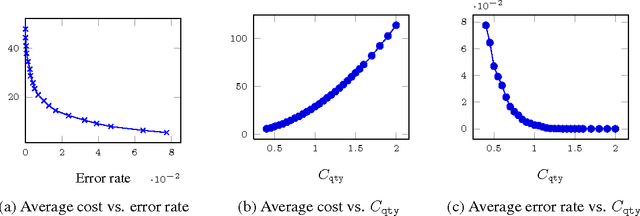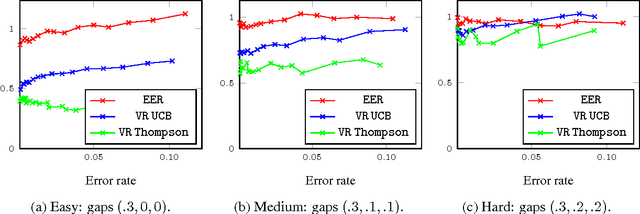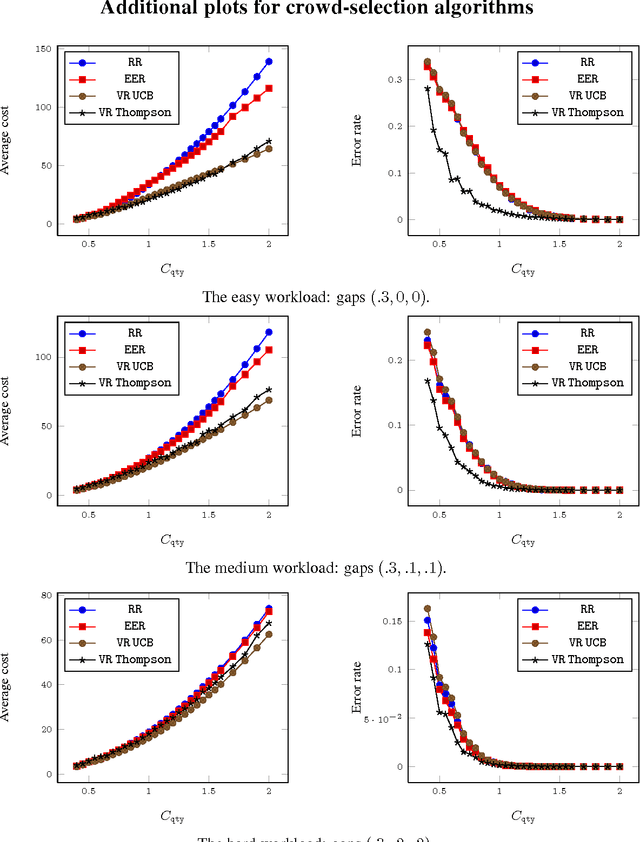Adaptive Crowdsourcing Algorithms for the Bandit Survey Problem
Paper and Code
May 20, 2013



Very recently crowdsourcing has become the de facto platform for distributing and collecting human computation for a wide range of tasks and applications such as information retrieval, natural language processing and machine learning. Current crowdsourcing platforms have some limitations in the area of quality control. Most of the effort to ensure good quality has to be done by the experimenter who has to manage the number of workers needed to reach good results. We propose a simple model for adaptive quality control in crowdsourced multiple-choice tasks which we call the \emph{bandit survey problem}. This model is related to, but technically different from the well-known multi-armed bandit problem. We present several algorithms for this problem, and support them with analysis and simulations. Our approach is based in our experience conducting relevance evaluation for a large commercial search engine.
 Add to Chrome
Add to Chrome Add to Firefox
Add to Firefox Add to Edge
Add to Edge